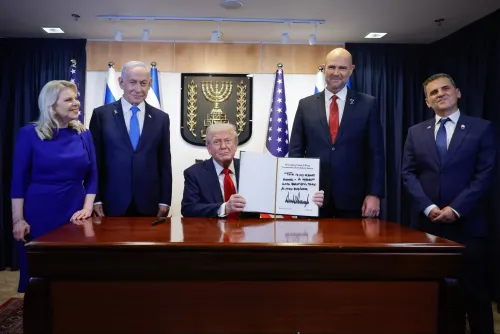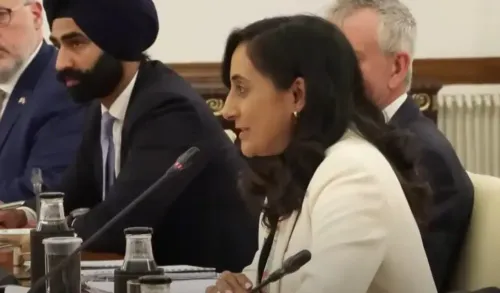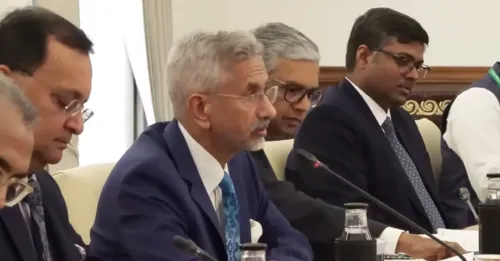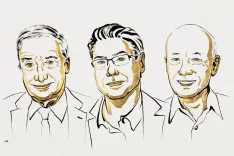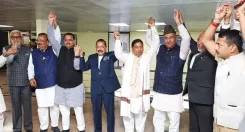Gabon to Hold Presidential Election on April 12

Synopsis
Key Takeaways
- Presidential election slated for April 12.
- No candidates have declared yet.
- New constitution adopted in November 2024.
- Transition from semi-parliamentary to presidential system.
- Presidential term extended to seven years.
Libreville, Jan 23 (NationPress) Gabon's Energy Minister and government spokesperson Séraphin Akure-Davin has revealed that the presidential election in this central African nation is scheduled for April 12.
The electoral college will convene on this date, with voting proceeding in accordance with the prevailing regulations, he stated while delivering the final communique from the Council of Ministers, overseen by President Brice Clotaire Oligui Nguema.
Currently, no individuals have formally announced their candidacy for the presidency.
On August 30, 2023, it was declared that Ali Bongo had been re-elected in the presidential election held on August 26. Soon after, military members, representing the Committee for the Transition and Restoration of Institutions (CTRI), proclaimed the cancellation of these election results, asserting that they had taken control and dissolved state institutions.
Nguema, who serves as Commander-in-Chief of the Gabonese Republican Guard, was later appointed as the head of the CTRI and the interim president of Gabon.
In November of that year, the CTRI announced intentions to conduct a referendum on a new constitution by the end of 2024 and to organize general elections in August 2025, according to reports from Xinhua.
The newly adopted constitution, established in November 2024, will transition Gabon to a presidential system, eliminating the Prime Minister position.
Over 91 percent of voters supported this new constitution in a referendum that occurred more than a year after the military junta took control in a coup within the oil-rich nation.
This constitutional reform aims to shift from the existing semi-parliamentary system to a presidential regime, granting the president the authority to dissolve the National Assembly once during their term.
Additionally, the length of the presidential term will be extended to seven years, with a single renewal allowed, an increase from the previous five years with unlimited renewals.

